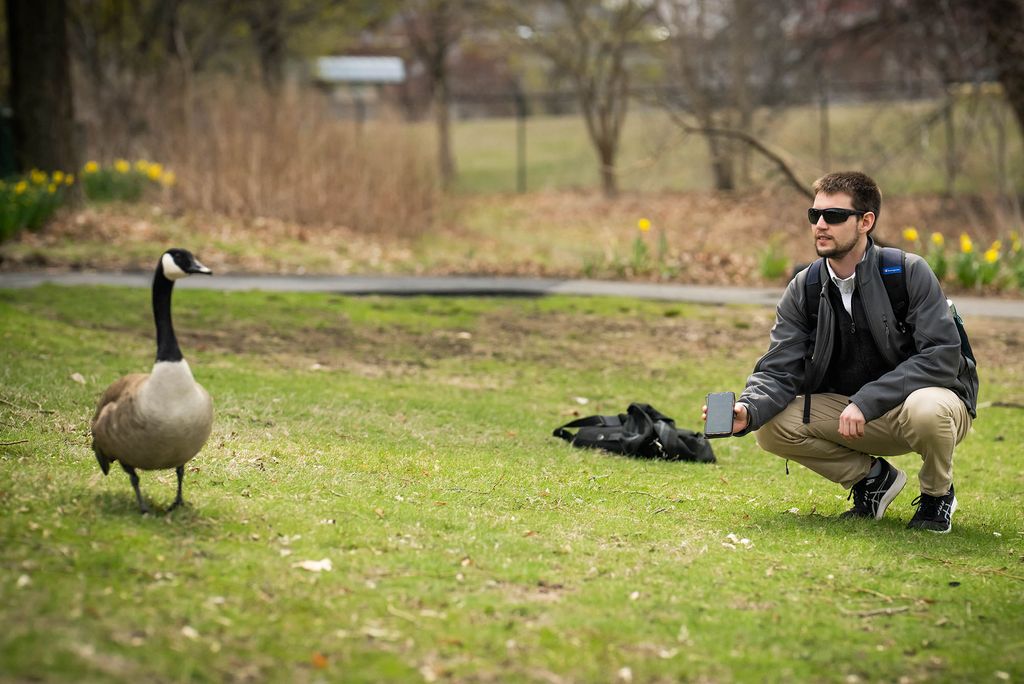How I Made This: Jacob Whitchurch (CFA’26)
The MM Composition major is expanding his understanding of what it means to be an orchestral composer. Geese are involved

How I Made This: Jacob Whitchurch (CFA’26)
Jacob Whitchurch (CFA’26) is expanding his understanding of what it means to be an orchestral composer. Geese are involved.
This article was originally published in BU Today on May 23, 2025. By Sophie Yarin. Photos by Jackie Ricciardi
How I Made This is a series from BU Today that explores how Boston University students create their works of art—be it a musical composition, a fiber sculpture, a short story, a painting, and beyond.
EXCERPT
As he was finishing up his first year in the College of Fine Arts School of Music Master of Music composition program, Jacob Whitchurch was thinking hard about what kind of composer he wanted to be. A musician from an early age—trumpet is his weapon of choice—Whitchurch (CFA’26) has been contending with the notion that a composer must have a compassionate understanding of the strengths and needs of the people playing his music.
“It’s about writing a piece that [musicians] can be successful playing. I’ve played pieces where the composer obviously doesn’t have that in mind, and it’s not a good experience,” he says. “You spend the whole time wondering, why did they write this?”
Whitchurch is holding on to that perspective as he expands his compositional knowledge. In his orchestration class, he was tasked by Joshua Fineberg, a professor of composition and director of the School of Music’s Center for New Music and its Electronic Music Studio, to take an expansive approach to composition that emphasizes properties of an individual sound over traditional melodic frameworks. Fineberg tasked his students to take field recordings of the world around them and turn them into orchestral compositions—which inspired Whitchurch to take his project in an unexpected direction. It might sound like a complicated premise, but to him, it belies a fundamental truth about the composition process.

Tell us about a recent composition.
Jacob: This was an assignment for my orchestration class. The professor is a spectralist composer, which is where you’re looking at audio signals and then graphing them in what’s called a spectrogram. You can see the sound waves going up and down, and you take the audio forms and modify them in interesting ways over time. You can change the pitch of the sounds, stretching a 10-second sound to a 10-minute sound. In this project, he wanted us to be more abstract with our concepts, so my project is about Canada geese. There are a bunch of them all around campus, and I’ve had these funny moments where I’m walking to school and traffic is held up, and these geese are acting like they have all the time in the world. I liked the idea of nature meeting the artificial world. I started constructing a day in the life of a goose: it starts out next to the river, then it gets stuck in traffic and cars honk at it. It gets in a fight with a squirrel, and then it gets interrupted by a lawn mower.